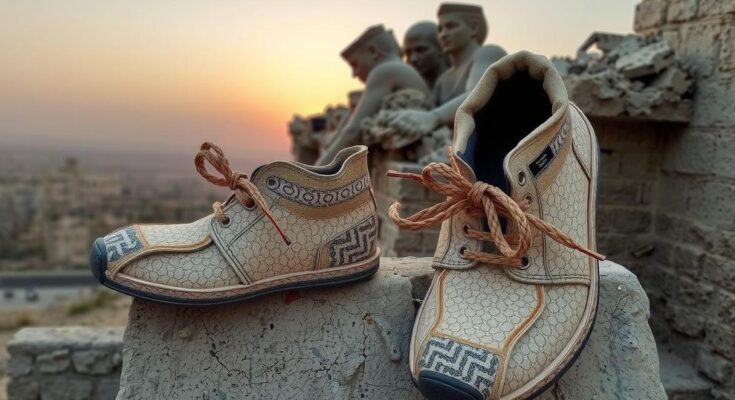The article analyzes Syria’s political future following the Baath regime’s collapse. It explores scenarios by comparing Syria with Afghanistan, Iraq, and Lebanon, emphasizing the need for a central, inclusive government to foster stability. With historical legacies of coexistence, Syria can potentially avoid the pitfalls faced by these countries, especially if external interference is minimized.
The recent overthrow of the 61-year-long Baath regime in Syria has ushered in a new political landscape, led by the opposition group Hayat Tahrir al-Sham (HTS) which seized control of Damascus. This change raises numerous questions regarding the future of Syria, with contrasting opinions on whether the despotic regime has truly ended and whether a prosperous future lies ahead for the Syrian people. Observers have voiced concerns based on historical precedents set by Afghanistan, Iraq, and Lebanon, leading to the critical inquiry: “What awaits Syria in the future?”.
A parallel can be drawn between Syria and Afghanistan, particularly in their post-conflict scenarios. Afghanistan experienced significant turmoil following the Soviet withdrawal, leading to the Taliban’s rise. However, current developments in Syria suggest that opposition groups are committed to preventing similar outcomes. The emerging Syrian government has agreed to dissolve various military factions and unify under a central Defense Ministry, incorporating defected military personnel from the former regime, thus aiming for stability instead of infighting.
In contrast, the Iraqi situation reveals a complex aftermath following the U.S. invasion which resulted in a sectarian government structure. Iraq struggled with ethnic divisions and external influences, primarily from the U.S. and Iran, obstructing its quest for sovereignty. The Syrian context diverges from this model; the opposition’s success roots from domestic rebellion rather than foreign intervention. Moreover, Turkey’s supportive role emphasizes the preservation of Syria’s territorial integrity without fostering sectarian policies, allowing for a more inclusive approach.
Examining Lebanon’s ethnic and religiously stratified governance system reveals further distinctions. Lebanon struggled with instability due to its constitutionally mandated sectarian divisions, which have become outdated. Unlike Lebanon, Syria has a rich historical legacy of coexistence among various communities, illustrated by cities such as Aleppo, known for their cosmopolitan makeup. This historical context discourages the adoption of a Lebanese-style governance model in Syria.
Ultimately, the most favorable resolution for Syria would involve establishing a strong central government, eschewing ethnic quota systems that have impeded governance elsewhere. The Syrian populace’s tradition of coexistence supports the viability of a unified state structure. A new constitution fostering equal citizenship, particularly acknowledging the rights of the Kurds who faced historic disenfranchisement, is essential. With non-interference from external powers, there are grounds for optimism regarding the Syrian people’s ability to solidify national sovereignty and political stability.
The article discusses the evolving political situation in Syria following the ousting of the long-standing Baath regime. As the opposition led by HTS assumes control, the article examines potential future scenarios for the nation by drawing parallels with Afghanistan, Iraq, and Lebanon. It highlights unique aspects of Syria’s context, the potential for unity, and the challenges that could influence its political landscape.
In conclusion, the future of Syria hinges on the establishment of a centralized government avoiding sectarian divisions common in other nations. The commitment to a constitution based on equal citizenship may ensure lasting stability and uphold the nation’s tradition of coexistence among its diverse communities. Provided external forces refrain from intervening, Syria stands a chance to build a united and sovereign state that reflects the aspirations of its people.
Original Source: www.dailysabah.com




